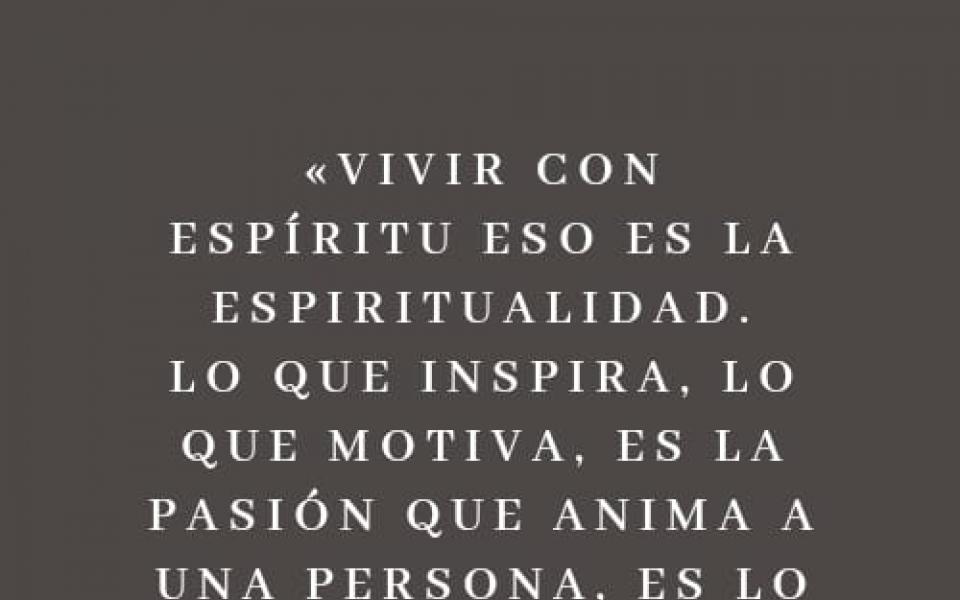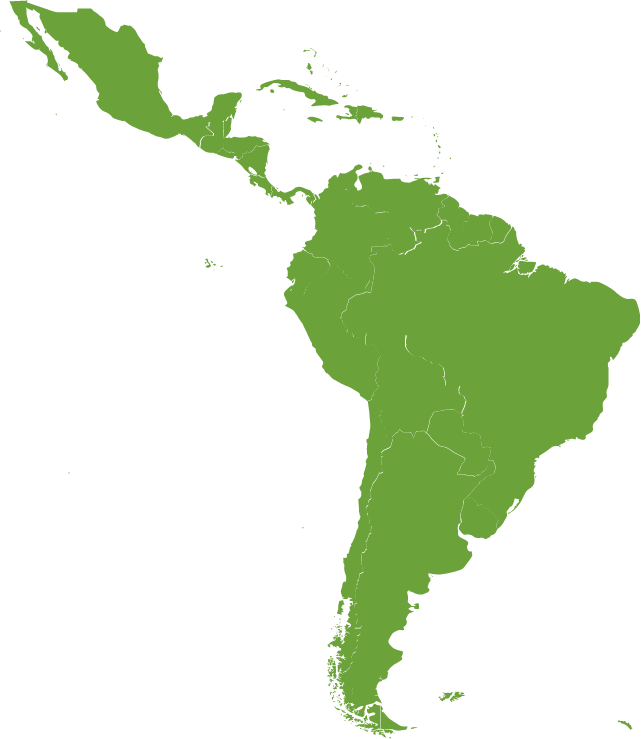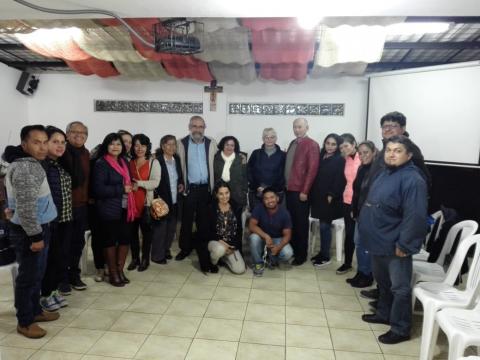
"Live with the spirit this is spirituality. What inspires, what motivates, is the passion that what cheers up a person, is what infect us"
Due to the time in confinement (45 days on average) that we have been in the countries of the Latin American region due to the Covid-19 pandemic, there are few activities that we can share with our network. However, some members of our CCs are taking advantage of this time to reflect and write on topics such as religion, spirituality, dialogue, among others. On this occasion, we share a text written by Víctor Rey, member of the CC CREE of Quito, who asks us:
"This is a very suitable time to reflect on our person, too busy in daily life almost always devastated by stress and other forms of tension and oppression that the contemporary human being lives. The body always asks for serenity and our culture rarely provides it. Added to this reality, another no less important: religion is still the issue that most worries people. To give a simple example: in the popular Google search engine, the term "religion" registers 352 million pages, while the word "science" has to make do with 60 million entries. The difference is remarkable and is due to the concern we express about everything that escapes rational explanation, despite living in the midst of scientific and technological development. What is happening in religious and health cultures so that such eclecticism has become possible?
With this panorama, it is necessary to comment on the relationship between health and spirituality, understanding it as an exclusive characteristic of the human being, a vital need that pushes us to seek the essence of life itself; that is, to ask ourselves the metaphysical questions of all times, from different perspectives (theists, deists, agnostics, atheists).
For many researchers, religious belief and spiritual experience have a neural correlate in some systems of our brain. The deduction is logical considering that all our thoughts or mental states are caused by brain processes. But can we clearly state that "all" our mental states are products of the brain? The question is not trivial, and before it it is necessary to adopt a cautious caution. I am referring, of course, to consciousness: explaining it on a physical basis is, today, a naivete, because we do not know what consciousness is, nor what mental processes actually cause it, nor how it operates to transform or modify states in the own brain.
But we can be sure of one thing, and that is that it is a unique phenomenon in the universe: the emergence of consciousness is the most important fact of evolution, although we cannot speak of it in exclusively biological terms, as some claim philosophers and biologists, trying to get away from dualistic positions.
Taking into account this prudence, which in no way intends to diminish the importance of the neurological approach, some anthropologists even propose that consciousness is not restricted to the brain, but extended or encoded in a wide symbolic network of a cultural nature. Ultimately, cultural processes are responsible for a large part of consciousness. The thesis is not new, since from cultural and social anthropology undoubted attention has been paid to the cognitive processing of the information synthesized in the language used, whose origin also constitutes another enigma.
Thus, knowing that consciousness is personal, but that it is also possible that a part of it is an interwoven phenomenon in the cultural network itself, we can think of our spiritual dimension, even mystical, as an exclusive property of consciousness.
In short, the essence of the human being is an uncomfortable and tense duality of rational technology and irrational belief. We are still a species in transition.
But this species in transition, this we that has managed to evolve and survive to impressive levels of knowledge, faces the problem of consciousness trying to break it down into neural systems, taking the explanations to the sub-atomic and quantum scale, if necessary. .
If spirituality is a characteristic of consciousness, and it is posed in exclusively biological terms, we could very well affirm that the basic elements of religion are in the brain itself. However, as we have seen, the explanation raises many unknowns, impossible to clarify at the moment. Furthermore, the vast majority of believers, whether of monotheistic or deistic tradition, would deny the possibility that their religious experience is the product of a complicated neurological mechanism or of a symbol-based cultural evolution because, from these perspectives Believers, it is this "cultural layer" that prevents true access to divinity.
Indeed, if we stick to scientific research, certain brain processes are causes of altered states of consciousness - which does not mean that they cause consciousness itself - such as hallucinations, trance, possession, vision, some types of dream etc. These states are part of the cultural heritage of a religion or religious practice on numerous occasions. Each tradition gives more importance to some than to others, but all are inserted in the human being. They are part of our biological and cultural essence. Thus, when man had not yet staged the break with nature and its cycles, these processes provided precise and unique meanings. According to some historians of religions, the first religions were of the shamanic character, a concept that includes these altered states of consciousness.
The progress of Humanity, in its history of destruction, and also of construction, has cornered in the depths of the mind the inheritance of a conscience not subject to strong cultural pressure, a conscience clean of ideological grafts and more or more norms. less established. And we are now stripped, almost dispossessed of one of the most important properties of our consciousness: being ourselves, having our own identity, not based on an identification number for tax purposes or police control. Religions, structured around different beliefs, rituals and norms, sometimes constitute the "cultural layer" that prevents the true experience of spirituality. The balance is broken and the person sails in sinuous waters where everything is given. Doubt arises, fear, anxiety, routine and, therefore, illness. So, this person deprived of his own natural capital, immersed in a sophisticated and superficial world, goes to the psychotherapist, the counselor. You need to reestablish balance, find a hold to which to tie without fear of falling and total abandonment.
We can say that we are before the rebirth of a subjective and experimental spirituality often supported by scientific arguments, which stands at the same time on three crucial criticisms: The critique of materialistic reductionism of biomedicine, the critique of the transcendentalism of the book's religions, and criticism of the strong institutionalization of medicine and modern religions. "

